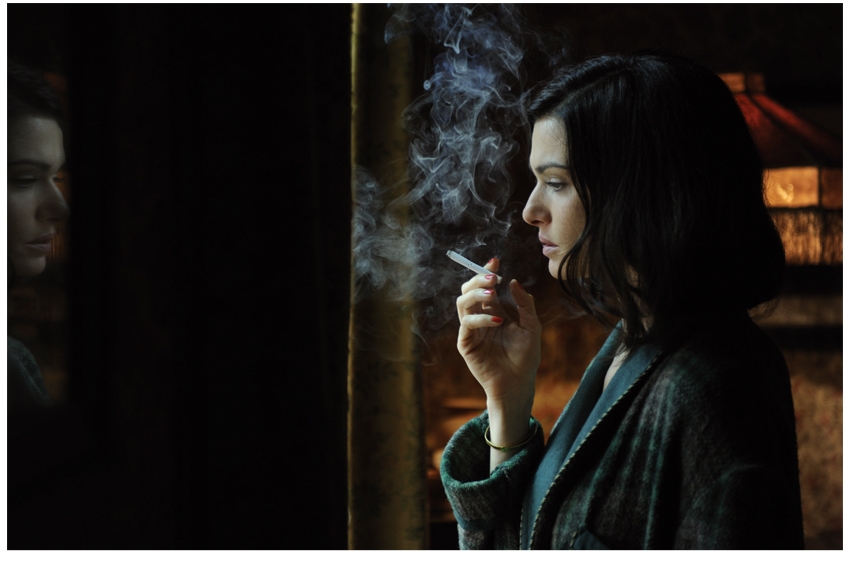As there were no invites this week from Hollywood movie stars — I thought Nicole Kidman might ask me over for a girls’ night in, to do face packs and nails and stuff, but not a squeak — I have to get back to the business of reviewing, and so here we are with The Deep Blue Sea. This is Terence Davies’s take on the Terence Rattigan play of the same name, and it’s awfully, awfully good — superb acting; superb sweeping crane shots; a superb evocation of postwar London in the Fifties — but it somehow fails properly to come to life. A new Davies film is, of course, a celebration, and this is his first narrative one for 11 years, but I think it may be too good for its own good, if you get my drift. (Don’t worry if you don’t. There are days when even I don’t get my own drift and have to chase it up the road.)
The story is driven by a love triangle between Hester (Rachel Weisz), her ageing eminent judge husband William (Simon Russell Beale) and her young, former fighter-pilot lover Freddie (Tom Hiddleston). The film opens with a swirling camera shot across bomb-damaged Ladbroke Grove and then proceeds into the window of a boarding house, where we see Hester attempting suicide. This is part of a nine-minute, near-wordless prelude accompanied by the soaring orchestration of Samuel Barber’s Violin Concerto, so no one could accuse this film of not taking itself seriously enough.
It is also accompanied by a series of tumbling flashbacks, bringing us up to date: Hester has left her husband for Freddie, with whom, you are given to understand, she has experienced sexual pleasure for the first time, but now Freddie is tiring of her. Hester does not die (it would be a pretty short film if she did) but is rescued by her landlady, who smells the gas, but what is Hester to do now?
Davies has excised some of Rattigan’s text, added some of his own, and even added new characters, such as William’s snotty, catty mother (a tour de force by Barbara Jefford) who gives Hester a marvellous pep talk on ‘guarded enthusiasm’ being preferable to ‘passion’ and which I rather enjoyed, as it made a change from Hester staring gloomily out from thick curtains, which she does rather a lot.
The crux of the matter is this: Hester loves Freddie more than he loves her. She is obsessively in love with him but he cannot reciprocate not because he’s a cad, but because he does not have it in him. Although I adore Hiddleston and would happily jump him any day of the week, the character of Freddie just isn’t up to much. He is callow. He calls people ‘old fruit’ which has to be offputting. He just isn’t interesting or likeable. So even though Weisz’s performance is absolutely luminous, and even though I could happily look at her on all the days I wasn’t jumping Hiddleston, we can’t sympathise with her. We can’t feel her passion, which is a bit of a blow, as this is a film about passion. She even got on my nerves by the end. Why are you so clingy, woman? Why are you so needy? For heaven’s sake, there are plenty more fish in the sea, deep blue or otherwise! Pick a sea of your choice!
This is a film that takes itself not just seriously, but enormously seriously — every line is given huge emotional weight — even though Hester’s problem seems really rather slight. Davies is, though, brilliant at the period. The smudgy browns. The smoke-choked pubs. There’s a particularly wondrous tracking shot involving Aldwych Tube station during the Blitz, and the theme of life carrying on even after it’s broken occurs again and again in the sweeping shots of damaged buildings. There are little homages to Brief Encounter, and it feels like ‘a woman’s picture’ from the Forties or Fifties, so much so the whole thing may be too period — and I include the characters in that — and so rather irrelevant. See, now, why I said ‘too good for its own good’? Are you getting my drift? If you’re still not, don’t worry. It’ll come home when it’s hungry. It always does.






Comments